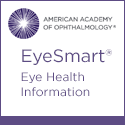Accepted Insurance Plans
Ophthalmology Associates accepts most major insurance carriers, including:
- Medicare Part B
- Aetna
- Blue Cross Blue Shield
- Cigna
- United Healthcare/AARP
- Humana
Please contact your insurance carrier to determine if Ophthalmology Associates is contracted with your specific health plan. If you are covered by an HMO plan, please contact your Primary Care Physician to obtain a referral and prior authorization before your appointment.
Vision Plans
Ophthalmology Associates accepts EyeMed Access and EyeMed Insight
Payment Information
Insurance Co-Payments: Copays are due at the time services are rendered.
Refraction: A refraction checks the prescription of your eyes and is an integral part of your comprehensive eye exam at Ophthalmology Associates.
While a refraction is essential to offering the best vision care, they are NOT a service covered by Medicare or most insurance plans.
Payment for the refraction is collected at the time of service – in addition to any balance or co-payment.
Should your insurance plan pay us for the refraction, we will reimburse you accordingly.
Routine vs. Medical Eye Exams
Regular eye examinations are important to maintain your vision for your lifetime. It is important that you be aware of your insurance benefits and how they apply to your visit, so you will know how billing will be handled. Ultimately, it is your responsibility to know what your own medical or vision plan covers. We hope this information will help you to understand how your visit is submitted to your insurance for today’s visit and future visits with Ophthalmology Associates.
Benefits may vary based upon the reason for your visit. Your description of your eye condition will help us to determine whether your visit to the clinic is defined as “Routine” or “Medical”. Your symptoms and eye examination will determine how your visit is coded and billed to your insurance.
Routine Eye Examinations
A “routine eye exam” takes place when you come for an eye examination without any medical eye problem, and there are no symptoms except for visual changes that can be corrected by eyeglasses or contact lenses. The doctor screens the eyes for disease and finds no medical problems. Glasses and contact lens prescriptions may be updated.
Medical Eye Examinations
Your visit will be coded as a “medical eye examination” whenever you are being evaluated or treated for a medical condition or symptom that you bring up, eye problems you tell our staff about, or a condition that the doctor finds during the examination. Examples that will necessitate your visit being submitted to your medical insurance include headache, diabetes mellitus, eye irritation, dry eyes, allergies, floaters, contact lens intolerance, glaucoma, cataract, eye muscle imbalance, “lazy eye”, macular degeneration, and others. Please note that if you have diabetes mellitus and would like us to send a letter to your primary care physician regarding your eye examination, the visit will be coded as a “medical eye examination”.


